Masking and Visitation Changes: Due to high rates of respiratory illnesses in our community, we’ve made changes to our masking and visitation guidelines. Learn more.
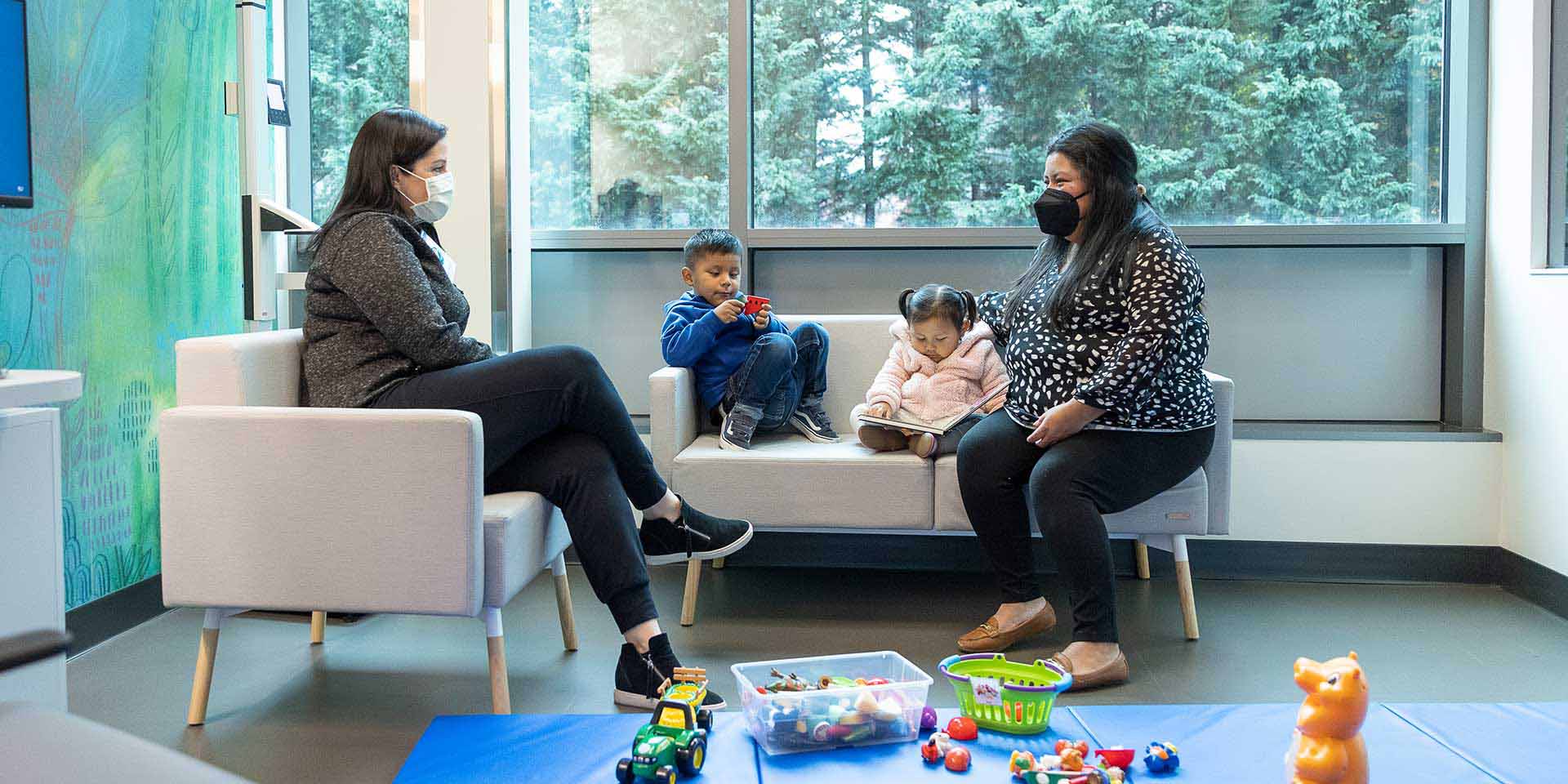
Seattle Children’s Magnuson:
Meeting the Needs of our Community
Seattle Children’s is working to create a future where every young person has access to evidence-based mental and behavioral health services when and where they need them. With this renovation and move, we have created a hub for autism and behavioral health care, outreach, training and research, so that we can better meet the needs of youth and families in our community and beyond.
In this new space — specially designed for youth with autism or behavioral health needs — we will continue to provide the high-quality, family-focused care Seattle Children’s is known for, while accelerating collaboration between the clinicians and researchers who are working tirelessly to meet the growing need for autism and behavioral health services for youth and their families.
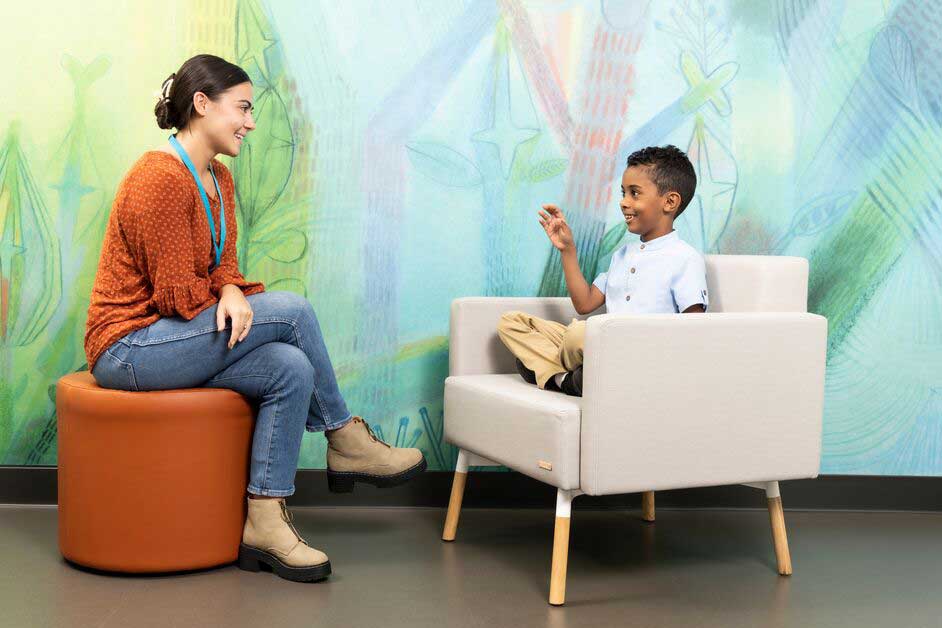
At 45,000 square feet, this new site helps ensure we have the necessary space to provide the best, family focused, state-of-the-art care for kids with autism or behavioral health needs.
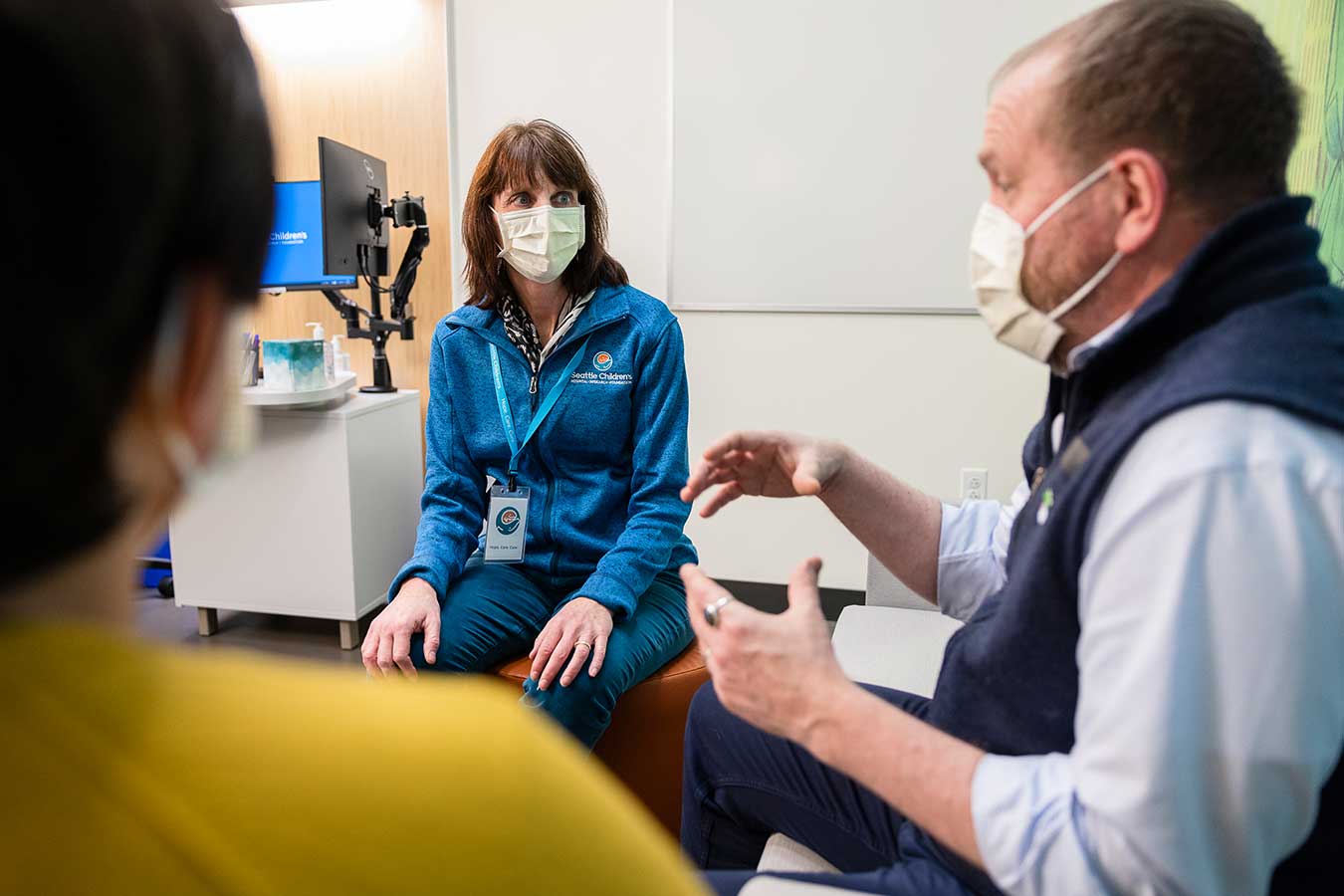
The new space provides more treatment rooms and clinical spaces, where the team can facilitate clinical research. This allows families more opportunity to participate in research as well as get access to cutting-edge treatments.
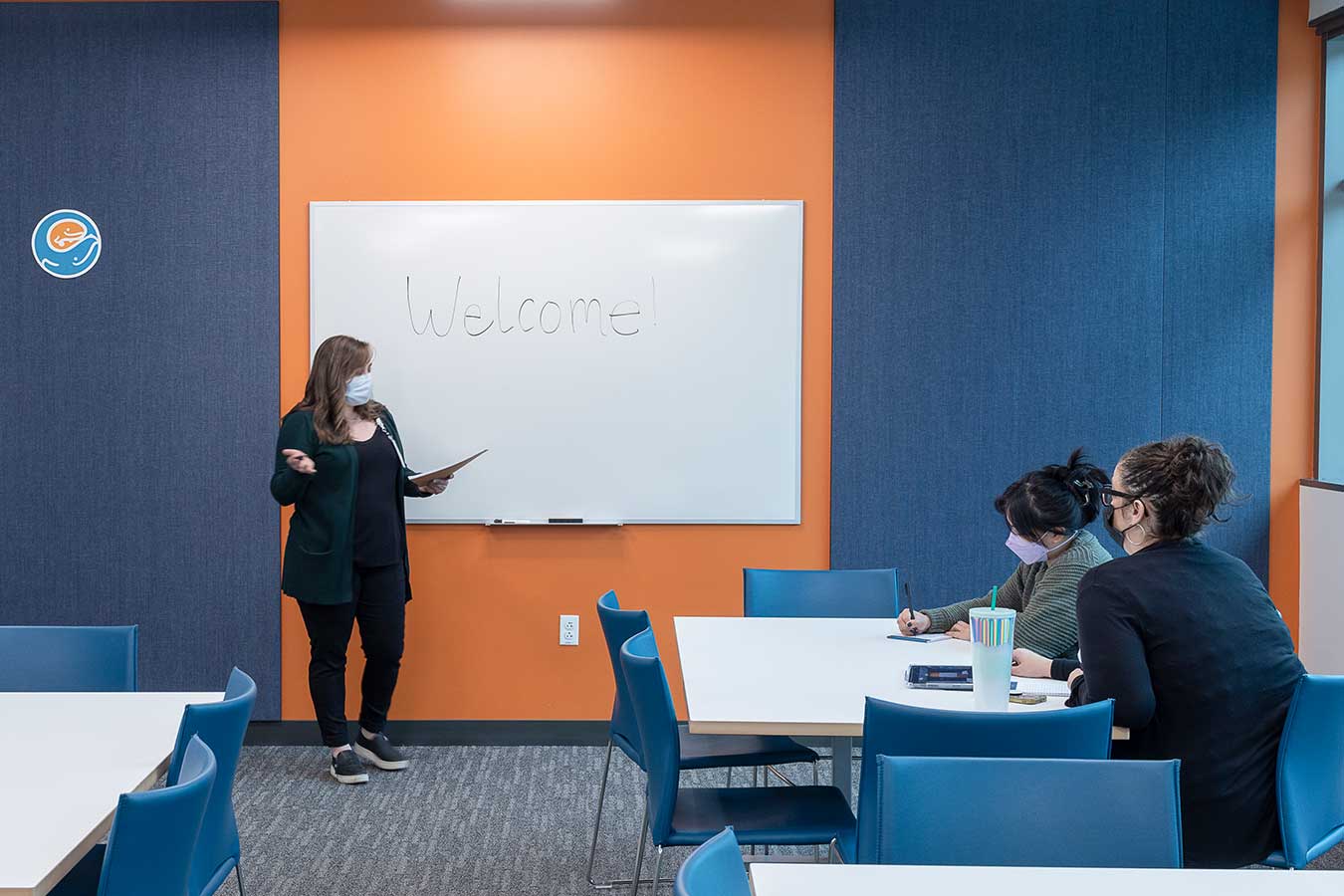
The new space includes better technology for observing trainees and for conducting livestreamed training for community providers, etc. This capability will also support our goal of improving access, because people can then get the care they need in their community by a provider we have trained, equity (care closer to home is more equitable), and patient-centered care (because they can get what they need from a community provider they already trust).
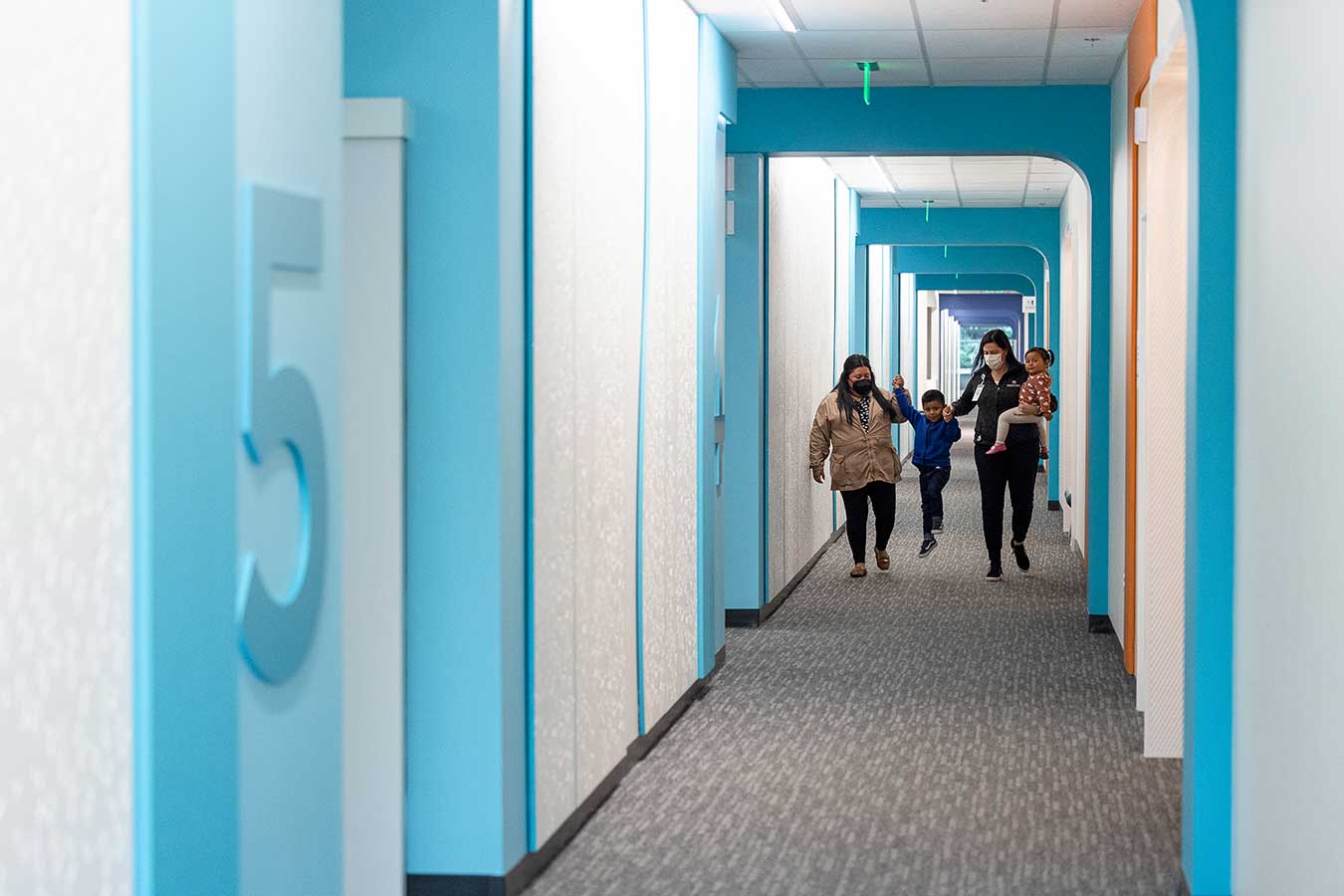
We hope this new space will serve as a gathering space for families and kids with mental health care needs or autism. We see opportunities for creating community partnerships through classes, support groups, the onsite resource library, play area and garden. The new space is close to the hospital campus and the Sand Point Learning Center (SPLC), which will also allow providers to easily move between the two sites and leverage the additional capacities of SPLC for community practitioners, just a short distance away.